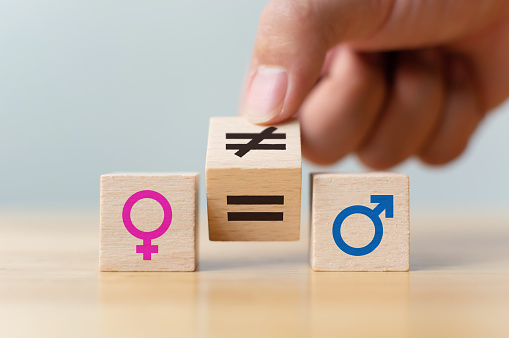In this Era, Depression is one of the main reason for morbidity & Mortality all over the world. Significance of Mental & Emotional Health plays a vital role in dealing with Psychiatric illness. If you ask a person about their current status who looks dull, they immediately reply “ Iam Depressed”. Remember,Sadness is not Depression.
What is Depression?
It is the Mental illness with Constant feeling of Sadness which stops you from doing your regular activities. You don’t have any specific reason for the current sufferings or for the current mood. The main difference from sadness is, Depression is having Suicidal thoughts.
Read also: What is Sadness? Health effects ? Tips to overcome from Sadness.
When you are dealing with Psychiatric disorders, as a Doctor you have to aware about these 4 states.
Deviance: Any deviation from thoughts, emotions and feelings which is common or which is acceptable by social & cultural norms.
Eg. Feeling of Guilt in the situation where one should be Happy
Distress: Negative feeling either from within or from the person around or as a result of Environment. Totally affects the way you think, feel and act.
Eg. Angry outbursts, Hopelessness, Expression of severe Anxiety or irritability
Dysfunction: Inability to achieve daily functions like getting out of bed in morning, going to work.
Danger: Word itself depicts!! Behavior that put oneself or someone in Danger.
Eg. Suicidal thoughts or Homicidal thinking.
Biology of Depression:
Hippocampus is the area of storage of memories and contains Serotonin receptors. Serotonin is one of many brain chemicals known as Neurotransmitters that allow communication across circuits that connect the brain regions involved in processing Emotions.
People with depression found to have small Hippocampus, so there will be fewer Serotonin receptors and thus by it has a direct impact on our Mental & Emotional Health.
Secondly, While in Depression, there will be an increase in Cortisol which has a toxic effect on the development of Hippocampus orelse it just shrinks the Hippocampus.
Common Causes of Depression:
- Abuse– Physical, Sexual, Environmental
- Age: For children who are not living with Parents, For old ages who are not living with Family.
- Major incidents like Death or loss of loved ones
- Conflicts
- Serious illness
- Substance misuse
- Medications like Antiviral drugs, Corticosteroids, Inteferon Alpha, Isotretinoin{Acne treatment}
- Dysbiosis– Imbalance in the gut microbial community that is associated with disease
4 different types of Depression for understanding:
- Situational
- Biological
- Existential
- Psychological
Situational:
It is otherwise known as Reactive Depression. It is the type of Adjustment disorder which make it hard for one to adjust to Everyday life following a traumatic event in life.
Eg:
- Death of loved ones
- Relationship problems
- Financial crisis
- Any Rejection or loss
Advice: Medications with Supportive Psychotherapy is essential, because treatment can help to enhance coping mechanisms and Resilience which help the individuals to cope with future challenges.
Biological:
Imbalance in any of the Neurotransmitters like Serotonin and Nor-Epinephrine or Hormones like Estrogen, Progesterone & Thyroxine which affects mood and Physiology.
Eg: Depression occurs as a result of difficulty in achieving one’s goals.
In Hypothyroidism, low arousals, persistent fatigue,low metabolism, poor concentration and cognitive slowing are the main reasons which find difficult for any individual to achieve their goals. Infact, it is impossible.
Advice: Medications first
Existential:
The trigger for Existential crisis is positive Event.
Eg. People want to attain their desired career, once they achieved, there will be a feeling of Despair.
Here there will be struggling to find out the meaning of life. Without any answers, without any sense of meaning, people might to feel hopeless, unmotivated and unable to cope with.
Existential depression results in losing touch with Personal values and life purpose. Psychologist Kazimierz Dabrowski described as “Disintegration of Self”
Advice: Self-Awareness, Self-acceptance, Self-regulation, Resilience building, Mindfulness, Meditation helps.
Read also: What is Self-awareness?
Psychological:
Psychological factors which leads to depression are,
- Losing Perspective– A loss of perspective makes one say and do things we may regret because it is complete loss of personal experience.
- Unrealistic Expectations- Expecting another person to make you happy, expect everyone should agree with you, think that you can able to change others, look others for self-validation
- Overuse of Defensive mechanisms– Unconscious strategies used to react or to avoid feelings is defensive mechanisms. Eg: Angry outbursts, Yelling, bullying, giving up, eating, Denial, Regrssion, Repression, Rationalization, Compartmentalization, Sublimation, Intellectualization.
Advice: Taking care of Mental & Emotional Health, CBT, Psychodynamic Therapy, Interpersonal Therapy.
Read also:
Common Symptoms & Signs:
- Weight Gain or Weight loss
- Loss of appetite or over eating
- Sleep disturbances or prolonged sleep
- Irritability
- Angry outbursts
- Sadness
- Nervousness
- Anxiety
- Despair
- Social Withdrawal
- Loss of Interest
- Mood swings
- Suicidal Thoughts
Read also: 10 ways to combat Depression
Depression Types:
- Major Depressive disorder- Symptoms more than 2 weeks
- Persistent Dysthmic disorder: Dysthymia, Persistent, mild form not more than 2 yrs
- Bipolar Mood Disorder
- Premenstrual Dysphoric Disorder
- Post partum Depression
- Seasonal Affective Disorder
- Atypical Depression
- Cyclothymia
- Psychotic Depression
Things taken in to Consideration during Treatment:
For Depression, Medications alone wont help.
One should need therapeutic counselling in the form of
- Cognitive behavioral therapy
- Psychodynamic Therapy
- Interpersonal Therapy
- Group Therapy
- Relationship Counselling
- Bereavement Counselling
Along with
- Resilience building
- Self-awareness
- Taking care of Mental & Emotional Health
- Balanced diet and diet also focus on Prebiotics & Probiotics Read also: Bacteria is good for your health
- Regular Exercise
- Mindfulness
- Meditation
Diet for Depression: Foods that reduce Depression
Grab a free E-book here about Mental & Emotional Health by submitting your mail id here: Click “ME”
Jealousy and Envy differences with Examples, Strategies to cope up with
Story narrates about facts of Men & Women
Happiness makes you Healthy, Happy Harmones!!
10 things to know about water,15 Healthtips about water
Share this post: on Twitter on Facebook on LinkedIn





